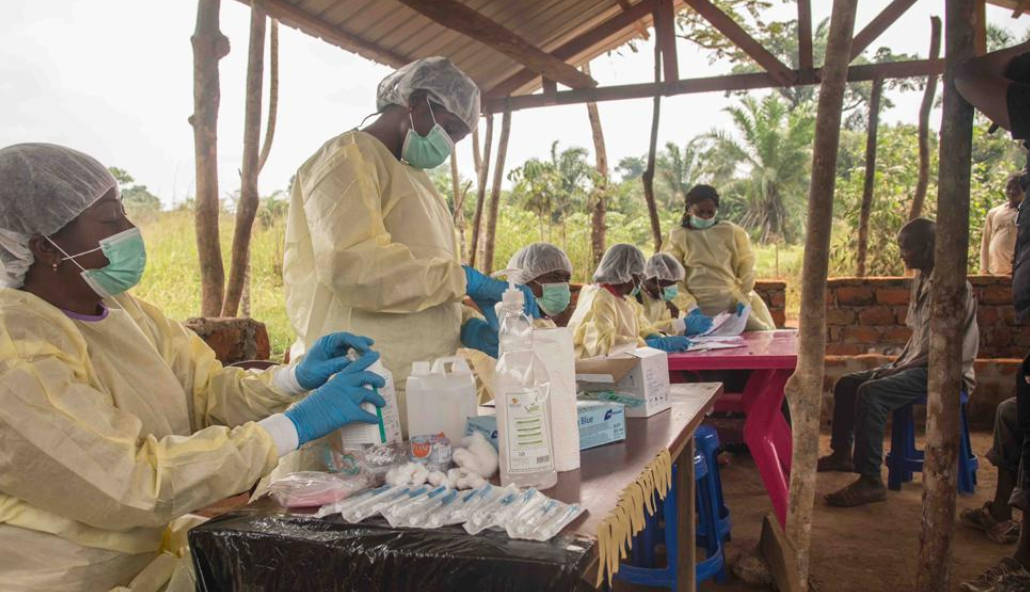IOM supports four health centres in Northern Niger with solar panels
“Many individuals in Niger still lack access to vaccination, medication and medical assistance,” said Barbara Rijks, IOM’s Chief of Mission in Niger.

- Country:
- Niger
During the COVID-19 pandemic, many remote communities in Niger struggle with access to basic services such as water, electricity and hygiene supplies. Poverty, inadequate roads and adverse weather conditions keep many from adequate healthcare.
With support from the European Union Emergency Trust Fund for Africa – through the EU-IOM Joint Initiative for Migrant Protection and Reintegration – the International Organization for Migration (IOM) is implementing several community stabilization activities in the region of Agadez, in northern Niger.
Between February 2019 and June 2020, 122 community-based initiatives have been developed, including 42 infrastructure projects, in 11 out of the 15 communes in the region of Agadez.
“Many individuals in Niger still lack access to vaccination, medication and medical assistance,” said Barbara Rijks, IOM’s Chief of Mission in Niger. “Ensuring that remote, vulnerable and at-risk communities have access to quality healthcare is of paramount importance.”
IOM recently supported four health centres in the department of Arlit, equipping them with latrines, solar panels, and solar-powered refrigerators which will enable medical staff to properly store vaccines.
The solar-powered batteries will help the health centres become self-sufficient as they will no longer need to rely on fuel or generators for their electricity supply. The new latrines will ensure proper hygiene standards while the outdoor lighting will increase visibility and enhance security at night.
“Previously, I had to bring the vaccines from the city because we didn’t have an adequate storage system,” said Mariama, a nurse at one of the four health centres in a district called Arlit. “If I couldn’t go to the city, then we couldn’t vaccinate children as their mothers couldn’t afford the trip downtown. Now I have everything in place, so I won’t have to go back and forth anymore and families in the periphery will be able to easily access our services,” she added.
Lack of proper lighting was identified as one of the community’s priority needs last year during a meeting held by a committee in Arlit. Four schools, three health centres and one maternity clinic located in remote locations outside Arlit were selected to receive new equipment.
One-month-old Amadou was born at the newly equipped maternity clinic in the commune of Akokan in Arlit, where deliveries in the past were often illuminated by a flashlight.
“After four girls, he is the only boy,” said his proud mother, Ramatou. “We often have power cuts in Arlit, so we are very grateful to not have to worry anymore about giving birth at night.”
In close partnership with the Regional Directorate of Public Health (DRSP), IOM is planning to install similar equipment in the coming weeks at the health centre located in the remote village of Aneye in the commune of Dirkou.
Additionally, a new health centre will be built for remote communities based in Tchibarakaten, in the commune of Iferouane.
“These initiatives always come from the community members themselves,” said the mayor of Arlit, Abdourahmane Dalahine. “The need for well-equipped maternity clinics and health centres was raised by women associations. Whenever there is a necessity, we do our best to come through and solve it,” he explained.
The activities funded by the EU Emergency Trust Fund for Africa and implemented in the framework of IOM’s community stabilization projects aim to support the government in improving access to basic needs and services, enhance local governance and social cohesion, and spur the economic recovery associated with the lack of economic opportunities in remote areas where the economy was once based on irregular migration.
(With Inputs from APO)










